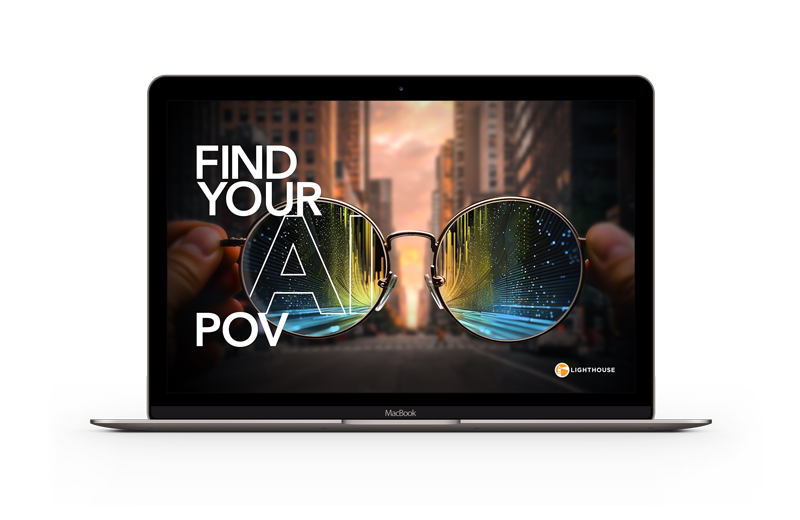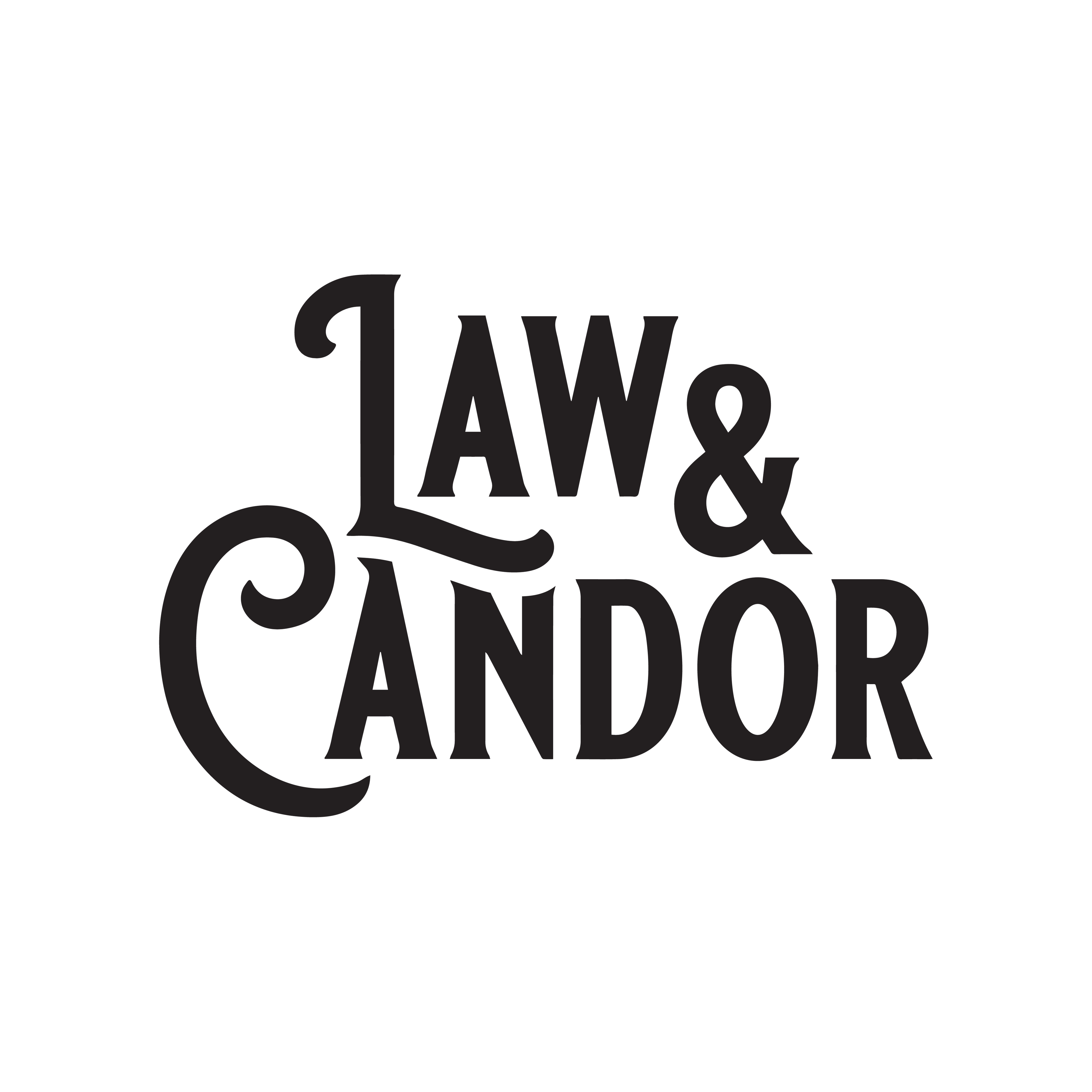
The Power of Three: Maximizing Success with Law Firms, Corporate Counsel, and Legal Technology
In demanding and highly contentious litigation or investigations it can often feel like it’s every person for themselves without much room for partnership. However, this is a lost opportunity. The relationship between the strong trio of corporate counsel, law firms, and legal technology providers is often an unacknowledged key to overcoming critical challenges. By sharing key information, balancing workloads, and building on each other’s expertise, these partners can work together to solve modern data challenges and the toughest matters.
Law & Candor welcomes Michael Bohner, Managing Discovery Attorney at Cleary, and Justin Van Alstyne, Head of Discovery and Information Governance at T-Mobile, to explore the practical aspects of this partnership, including balancing responsibilities, employing technology, and building relationships.
This episode’s sighting of radical brilliance: “Meet Aleph Alpha, Europe’s Answer to Open AI,” Morgan Meaker, Wired, August 30, 2023.
Learn more about the show and our speakers on lawandcandor.com, rate us wherever you get your podcasts, and join the conversation on LinkedIn and Twitter.

Episode Transcript
Paige Hunt: Hello everyone. Welcome back to a brand-new season of Law and Candor. I'm Paige Hunt, and I am here with my co-host, Bill Mariano. Hey, Bill.
Bill Mariano: Hey, Paige. How are you doing? This is season 12, if I'm not mistaken. Aren’t you supposed to give a gift for every anniversary. What do you give for season 12? Is it like wood or something terrible? Or is it diamonds? I'll have to look that up and come back to it. I know one anniversary is wood, which is ridiculous. I mean, if someone gave me wood, I'd get a divorce.
Paige: Some advice, always go with diamonds. Don't even worry about the other things. That’s my life lesson for you. Well, we have lots to talk about this season. We've got lots of developments on the generative AI front, big news in M&A, lots of shifts in the economy. I'm looking forward to these conversations. Bill, what about you? What have you been watching? What new ideas are coming up or do you have on your mind?
Bill: Well, first I'd like to say that I just consulted my Gen AI app on my phone, and apparently it's silk or linen for 12th anniversary. A little bit better than wood, which is I think was your fifth anniversary. I'll just skip fifth anniversary and go right to 12. Yeah, I mean, Gen AI, right? Since we recorded last season it's in every conversation, not only at work, but what's happening at home. I'm looking forward to see where this technology goes.
We have some interesting pods this season that talk about it. It's everywhere from, you know, working at home on your shopping list to how to find responsive documents. And it's credible and it's evolving. Every time I look up there's another use case for it. It's really cool and I'm glad we're at the forefront of it, discussing it on a pod with some of the really best guests that we could have on the subject.
Paige: It's going to be great. Well, for this first episode, we are fortunate enough to have two guests with us: Michael Bohner, Managing Discovery attorney at Cleary. And Justin Van Alstyn is back, Head of Discovery and Information Governance at T-Mobile. We're talking about the relationship between law firms, corporate counsel, and technology providers. As data and cases become more complex, and as technology advances, the conversation about how to rely on each other's strengths is really illuminating.
Before we jump into that conversation, it's time for sightings of radical brilliance. This is the part of every show where we bring to you the latest newsworthy innovation and acts of sheer genius. Our sighting today is from an article in Wired, “Meet Alif.” I can't say that name you guys.
Bill: Aleph Alpha. Listen, here's what I can say about Aleph Alpha. It's not going to win over Gen AI and Open AI because of the name. No one's going to be able to pronounce this thing. People are just going to go with open AI because it's easier to pronounce. So, you don't find yourself alone here. The only advantage they have is Europe wants their own version of it. And that's what this is, right?
Paige: I totally agree. Bill, I was going to ask you your thoughts, and I think you're on a roll. So, Aleph Alpha, let's just back it up for a second. The Wired article, “Meet Aleph Alpha, Europe's Answer to AI.” Bill.
Bill: Europe wants their own Open AI and politicians are sick of regulating American tech giants from afar.
And there’s a different regulatory agency in Europe popping up every day with a complaint about all of our tech companies. So, it makes sense that they want their own. It sells gen AI as a service to companies and governments and already has thousands of paying customers. From a tech perspective, from what we've read in in this article, it's right there. I think all these companies are going to be within shouting distance of each other. Because they're building off each other's tech every single day.
It's an interesting take that they want their own. Again, naming aside, it'll be interesting to see if Europeans go to the best technology in the market or the local technology. That'll be very interesting to see which way it goes.
Paige: Yeah, and I can’t imagine it would take a lot to come back and meet Google and others where they are now much less surpassing them. So, it'll be interesting to watch.
Bill: If you would've told me five years ago, or three years ago that some other company that we hadn't heard of would be leading gen AI development or productivity, I would've said, it's got to be either Google, Apple, Microsoft, maybe Facebook. But who heard of OpenAI five years ago? I mean, not me. It's interesting, I think these companies are all going to explode. It's an interesting article because it talks about Europe sort of favoring this one because they want one of their own.
Up next, we have one of my favorite podcasts we've ever recorded. We dig into to the power of a trio, and we do this with Michael and Justin, as Paige mentioned, from Cleary, Gottlieb and T-Mobile, respectively. And we talk about that three-legged stool that really is ideally what you have in place when you launch into a project, relying on each other to get us all pulling in one direction. It's a fantastic episode, I think you'll love it.
[Theme music]
Bill: We have a straight up party here with multiple guests today. Mike, welcome to the pod. And Justin, welcome back to the pod.
Mike Bohner: Thanks very much, Bill. I'm excited to be here.
Justin Van Alstyne: Yeah, same on my end. Excited to be back.
Paige: Well, we're glad to have both of you back here. Today we want to talk about what is often an underutilized partnership between law firms, corporate councils, and technology providers. To start, we'd like to understand how you've seen the dynamics between these three organizations, these three stakeholders, really evolve throughout your careers. Mike, let's start with you. What have you seen from a law firm perspective with your work and your role now?
Mike: Thanks very much, Paige. I'll just preface this by noting that all the opinions and thoughts I'm going to express here are my own and don't represent the positions of my firm or my clients. I've spent the majority of my legal career in eDiscovery and the information governance space.
I've worked with dozens of eDiscovery tech partners and countless clients over the years. I think the short story is that the most successful matters have always come when there's a partnership between the client, the eDiscovery tech partner, and the law firm. Forging those bonds can sometimes be difficult, especially under intense pressure that comes with a high-profile project. But honestly, open understanding, honesty, and instilling a sense of shared purpose all really go a long way in creating the teamwork that's necessary to accomplish a common goal.
Always treating everyone on the team, no matter their role or organization, with respect and professionalism, even in the face of adversity and intense pressure, makes the outcomes better, the burden's more fairly distributed, and may even make you some lifelong friends. In my work, I've seen somewhat of a cyclical process. My earliest recollections in the space are of tighter bonds between the law firm and the tech partners, both working together to get a project completed with little client input on the process. That later evolved as clients became more sophisticated and knowledgeable about eDiscovery and information governance.
The shift in the paradigm really did take some getting used to at first. I don't want to go too far down the rabbit hole, but I'm a bit of a control freak. I like to lead from the front. But as clients began to have more input and thoughts on how an eDiscovery project was run, I really embraced the idea of how valuable and knowledgeable an active client can be.
Later with the rise of direct, tech partner client engagements, some of the decision making on which tech partner tools to engage for a particular project, was kind of out of the law firm's hands, or at least we had less input. There was some very minor sense of loss for me for a little while. But the advantages of a client having a suite of reliable, consistent tech partners made far too much sense to ignore. As those relationships developed, and clients built thoughtful, dynamic, and robust eDiscovery and information governance operations, like T-Mobile has, the law firm took on a new role as a true partner amongst a group of, I like to think, intelligent and hardworking professionals and getting the best outcomes for the client as opposed to the law firm being the main driver of most decisions.
Again, it took me a minute or two to get used to it. I'm pretty decisive and smart when left to my own devices, at least for a lawyer. But the benefits of having other smart, knowledgeable folks to collaborate with, bounce ideas off of, build a consensus on the best path forward, it really outweighed any sense of ego, and it really has become just a huge blessing.
And now when I don't have that type of partnership for whatever reason, there's kind of a profound sense of loss that's something important and deeply appreciated is missing.
Paige: I love that. It's a good check and balance for sure. Well, Justin, you've worked at a law firm and you know, now you're at T-Mobile. How have those experiences influenced your perspective on this?
Justin: I guess I'll repeat Mike's standard disclaimer here…
Bill: About how smart he is? Oh, that’s later [laughs].
Justin: That's right, I'm going to make sure that I acknowledge the intelligence of Mr. Bonner before we get going here. No, just that these opinions are my own and, and forged through many mistakes that I've made throughout my career and learning from them.
There's a lot to unpack there with what Mike said. I think the most important thing he's talking about with that partnership is really that you have understanding and cooperation at all three levels, because there are pieces that each one brings uniquely that the others don't necessarily have access to.
At least on my side, the in-house side, I think one of the key things that I bring to the table is that I have a deep knowledge of our very idiosyncratic way of doing things. And every business is like that. There are no two clients for any law firm that are going to run things the same way.
Because once you get down to a granular level, it's individuals making these decisions, and people make decisions for all sorts of crazy reasons, right? And knowing that and being able to say, okay, here's what industry standard is, but here's how we do it at T-Mobile. And where this stuff is, what the pitfalls are. Those things are pretty unique to me. And then on Mike's side, really where that value is: usually as any in-house head of eDiscovery, or just running the eDiscovery function, it's more common, especially these days, you've got more work than you are ever going to be able to do. You have to be able to have a very good trusting relationship with that outside council, eDiscovery team, because they have to know what I want and the way I want things done, and then be able to execute on that on a daily basis when I can't always be looking and investigating every little thing.
And then of course, on the vendor side, that alignment to me is the most important. That one is non-negotiable. I'm not always as lucky that I get a Mike Bohner on all my cases. That doesn't always happen…
Mike: Too kind.
Justin: So, I have to deal with it. But the vendor side, right? That’s where being aligned with your vendor, having them know your processes and procedures, then I sort of rely on that PM on the vendor side a little bit more.
Bill: I mean, the, the truth is, everyone who works in eDiscovery works as part of a triad with a corporation, a law firm, and a vendor, but it's not always a partnership, right? And that's what I think we're talking about today as being the biggest difference. Justin, I'll direct this to you first, when you're talking about it as a true partnership, how do you assess the strengths of each? Because there's going to be overlapping strengths.
Justin: The ultimate decision-making process, at least for me, rests with me making sure that our processes and procedures are being followed. Because that's what I want is consistency across matters. That’s making sure that on every matter, they're doing it the T-Mobile way. I'm just of the belief that, generally speaking, that just increases your defensibility and your ability to say this is how we always do things. We're not just randomly making decisions. But, how that works depends on the case, right? When T-Mobile was going through the merger with Sprint, we're going through our second request. Obviously, there's a lot more that you have to delegate in that situation because of the sheer volume of data that you're dealing with. Mike, I can't remember what the exact amount of data was, but it was multiple terabytes of information. At that point, you need somebody who's going to help you. You could think about it on a very basic level, like, how do we chunk through this level, this number of documents? And what you want there is a genuine partner who is able to think strategically and help you have a plan for like how you're going to attack and try to eat this elephant.
And usually that's a combination. It's a combination of technology, people, strategy, all those things come together. And then another way, one of the biggest things that Mike provides is he provides a trusted partner on the law firm side to the law firm's partners. The people who are running the case trust Mike Bohner. They don't necessarily know Justin Van Alstyne from Adam, right?
A lot of times if you don't have that person translating for them, they get into meetings with me or the PM team and we explain things to them, and they don't have anyone who can translate that into advocacy, which is a huge skill. That's really it. It's not one that's the most advertised in eDiscovery, but that's a huge piece of it.
Bill: What about you, Mike? In terms of the Venn diagram, how do you assess the strengths and when to defer and or take the lead when you're in a true partnership like this?
Mike: That's a great question. I’d like to echo first a lot of Justin's points. And, and not to keep the smoke blowing circle going too hard here, but we, we certainly feel that same level of partnership with you folks at T-Mobile, and certainly with the folks at Lighthouse. I'm going to apologize a little bit in advance for this, but it kind of depends, right? I mean, it really boils down to gauging what expertise exists and with whom it lies early on. We know each other, we've all worked with each other on a lot of critical projects over the years so that's an ideal relationship. It's not always there, though. From the law firm perspective, again, having long-term clients and knowing the tech partners well is ideal. If you don't have that, I always like to drill down to the level of expertise. If you can get a meeting early on with a client's eDiscovery council, if they exist, if they're available, client legal, client IT, the chosen tech partner, and any other stakeholders like the client record management team. You need to assess systems. You need to assess sources. You need to assess expertise and extraction, preservation transfer.
You’ve got to understand what processes and experience exist with the client-side data, both at the client and at the tech partner side. From the law firm side, you need to push to do robust IT and custodian interviews. You've got to be able to sit down and talk to the people who know the data. With ones who have less experience with eDiscovery projects, you have to manage expectations, as Justin was saying, internally and externally. Sometimes the internal advocacy points are the more difficult ones.
You’ve got to get people at the law firm to understand the challenges you're facing. You've got to get folks on the client side potentially to understand the challenges that they're facing. Taking that extra day, two or three even, to understand sources and expertise and come up with a solid work plan given the needs. Actually talk to people who are doing the work, on both the client and tech partner side, making sure you're getting what you need in the format you need it in. It can save you time and headaches down the road. So really being thoughtful upfront.
This is an early way where you can establish trust: Make sure you're double checking each other's metrics and calculations without recrimination and judgement. And when you're looking at the law firms, speak with the discovery attorneys. I always find it beneficial if there's a firm that's got a strong discovery group outside of the traditional kind of associate to senior attorney and partner track. And then make sure that the law firm is sharing the responsibility for a good outcome. All too often you have situations where things can devolve into recrimination game. We want to avoid that.
There always should be shared responsibility and ownership for all aspects of the process. And the law firm should collaborate, understand, and support the tech partner in addition to the client. Make sure everyone is kept apprised of everything, deadlines, shifts in focus, timing, all that jazz.
Justin: I think the two points that Mike makes that I think are the most important there are, one, making sure you're talking to people. Because if you're not, if you're just sending emails, a lot of times you don't get the real story on a number of things. You have to actually dig in and be able to get down to that level. And then two, the without recriminations this part because, you know, I've noticed this. I'm coaching my 11-year-old’s football team this fall. You try to get them to realize that we are going for a team result here. There's going to be no prize for who made the best block if we lose 32 to nothing or something. You have to understand that you function as a unit. You're going to succeed or fail as a unit whether you accept that or not. It’s better if you have a relationship where all we're focused on is getting to the right place.
Paige: It's like gospel. If we could just have that start like that speech at the beginning of every new engagement as we train folks that maybe don't have the same level of expertise that would just make our team's lives so much easier. I love everything you guys said there.
When a matter's underway though, what are some of the ways that you can evaluate responsibilities and workloads to ensure that there's balance and efficiency and that you're making the best use of everyone's expertise? Mike, I'll start with you again.
Mike: That's another great question. There's obviously a lot of different aspects to a project, especially large and complex ones. I think the most important piece of all this is to, again, establish a shared sense of purpose and a sense of shared ownership. No one person or organization is going to be able to do everything and avoid the pitfall of blame.
And again, recrimination is paramount. Things are going to change as a project kind of runs and evolves. A few tips, rules of thumb, that I've always found helpful are from the law firm project leadership side, make sure you're delegating and trusting, but verifying the repeatable processes, like pulling metrics, conducting QC of review, technical processes. Be upfront about what you're looking at and let everyone know that you're going to be double checking those things.
Once you have that trust established, you can kind of hand off pieces of that to other members of the team. Make sure you've given your tech partner enough purchase to trust to bring process problems, workflow inefficiencies, or any other issues to the table. It's something that should be so simple that. I think tech partners or vendors have gotten beaten up over the years so much that they're almost afraid to bring even good ideas to the table. Even with people you've worked with in the past, you've got to kind of reinforce that idea early on in a project.
Make sure the client is kept fully informed of any challenges or changes in initial plans. There's nothing worse than making a necessary shift in process to correct something that's not going right or to move faster that requires some compromise, but not having all parties, especially the client, informed about why something was done. That's a terrible outcome. And it is deserving of fury on the client end.
Then I think tech partners we've got to understand that they're best positioned to keep track of metrics, track and prepare things like processing reports, gap analysis, review related statistics, and just make sure you're double checking all that stuff. But, let that work go to someone who's got the time and capacity and can do it cheaper than a law firm.
Then make sure you're deploying the right tools. You know, not every case requires the latest and greatest tech. A lot of my stuff is kind of midsize litigations, 20,000-30,000 docs. Let's just review it and get it done. I don't need to build a huge, expensive, time-consuming model on that. And then if you need to shift, understand the limitations, cost, and benefits. Make sure you're talking to all parties and make sure you're asking questions. And as Justin said, keeping that dialogue open. It's just all too off that people get lost in either too much work or they think things are running fine. Just check in and be proactive about checking in.
Then lastly, as you're evaluating things, especially early in the project and you’re making adjustments, make sure you're giving feedback to all stakeholders in a timely fashion and everyone's identifying deficiencies no matter where it is. If it's my deficiency, if it's on the tech side, if we're missing pieces from the client, whatever it is, just make sure everyone's on the same page.
Justin: The good news for Mike is that he never has to follow up with me about anything. He never has any outstanding items that maybe he sends me five or six times in an increasingly nice tone. What Mike is talking about right here, this is team building 101, right? If you are on a team with somebody and they don't trust you, that's the best way to get a bad result. This is why I focus on it as the sort of the eDiscovery lead here. I want my PMs to tell me if something is unusual, because I don't have the time to look at every single email for every single case. That's just reality. That's the key to team building, right? If you're going to rely on people, you've got to make them capable of exercising judgment. Being able to say what is actually important that Justin needs to look at today versus what's something that's an easy decision that we can just make in a second and it's not really going to have a material impact on the case. But, to get people to that point, you can't be screaming at them and berating them, at least in my opinion, some other people might be more subscribed to like the Bob Knight School.
[Laughs] Fear is probably the number one thing that reduces performance. And number two is lack of trust, and they're very related. So, I think everything that Mike said was very good.
Bill: Such an Indiana reference.
Justin: That's right. I had to do one.
Bill: In addition to building an eDiscovery engagement model to mimic a peewee football team, and not necessarily Bobby Knight's version of basketball…In terms of technology solutions, again back to the Venn diagram, how do you work with outside counsel and your provider to ensure you're architecting the best solution?
Justin: The things I’m assessing when I'm doing that are one, the overall risk amount in the case, that's the number one thing. I'm not going to build a huge model or review, you know, 500,000 documents for a case that's worth a hundred grand. That math doesn't work. And you have to be honest with your case team. Like, look, guys, if these are our discovery obligations, we should just settle this unless there's a huge strategic importance to what we're doing that's non-monetary.
Number one, the risk value. Two, you get a feel after a while for where AI, machine learning, continuous active learning, those things seem to work. The threshold for me, and I don't know if this is giving away the game, but I don't really like to do it unless it's above 100,000 documents in a set. Right around there. I can go a little more, I can go a little less. If Mike presented me with a really good use case, I would definitely reconsider that position. But that's generally what I have in my mind.
Finally, when you're thinking about that, what resources do I have available? What's my budget? Where does outside counsel spend go? People who aren't in-house attorneys might not realize which bucket a spend comes from sometimes is a very significant thing. Sometimes you might shift it around in ways that don't really make much of a practical difference, but make a big difference to the people above me. I think those three things. And really, at the end of the day, it does come down mostly to risk because it's going to be a defensible process matter what we're choosing to do, but sophistication of outside counsel.
I'm much less likely to try to use ML or AI with an outside counsel who isn't good at advocating for this stuff. That's something a lot of technologists, especially in eDiscovery, ignore, because they say you should always do the most technologically advanced process. But if I'm spending $30,000 on a motion to compel defense from the other side, that we then get into this huge discovery dispute where the judge gets involved or at least the magistrate. Is that really worth it? I think that's where my hat comes in. You have to have enough experience to understand we might save some money, but that's not really strategically worth it in the end. Do we actually save money right when you add it all up, right? Because it's all in the end coming from the same place.
Paige: Totally makes sense. Mike, how do you specifically nurture partnership in this dynamic? I mean, do you have other advice you could offer the audience?
Mike: Yeah, I think we've touched on the big pieces here. A lot of these are having kind of repeat clients that you've known over the years. But I think you can still establish a solid working relationship even with first time folks.
From the law firm perspective, we need to understand that the discovery world is heading towards many more direct client and tech partner relationships being the norm. The law firm is kind of the odd man out, the third party, the one that's coming into the existing relationship. Getting to know who your client's preferred providers are, what their strengths are, what their weaknesses are, what the options are for tools that they can deploy, and their expertise, especially for that case, but kind of their expertise across the industry more broadly is going to be really helpful.
Talk to your clients. Talk to your tech partners. Go to the industry events. Vet folks that you don't have knowledge with. As you get started, and I think Paige we talked about this in the past, build that sense of shared responsibility. You had a great idea that I think kind of falls in this bucket—the after-action reports. I don't want to steal your thunder, but maybe you've got a few thoughts on that.
Paige: I come from a law firm background before coming to Lighthouse, and one thing I always appreciated taking part in is that retrospective look back. How did it go? What could we, collectively as a team, have done better? What could we do differently moving forward? How do we improve our process?
And when you're jumping from provider to provider and different counsel all the time, it makes it more challenging to do that and to really improve. To make it as robust as possible, you need all three voices in that process.
Bill: As we close out, we like to leave the audience with a bit of advice. It would great to hear about some of the benefits that each of you have experienced and advice that you would talk to our listeners about.
Mike: I'm already being long-winded here.
Justin: We’re all lawyers, Mike, there’s only so much we can do. Really, it’s sort of an occupational hazard.
Mike: Why use three words when you can use 40?
Justin: That's right
Bill: Especially when you get paid by the hour, which we're not doing for you guys on this pod, by the way.
Mike: Look, I don't want to sound sappy. I've developed some, honest to God, lifelong friendships, and professional partnerships with clients and tech partners. That's my biggest personal benefit. Professionally, honestly, getting enough knowledge, whether it's through long-term exposure and collaboration or really kind of digging down into the brass tacks early on about the client and the tech partner to plan effectively and react quickly is super valuable.
That often comes when clients have long-term tech partners and long-term law firm relationships, but you can at least plant the seeds for it early on with a new client or new tech partner. Then just build on that trust, that knowledge, that hard won experience with the data landscape, all the weird stuff we do, information governance, eDiscovery, data security, privacy. And staying collectively abreast of how the law is changing, regulations are changing, sophistication is changing, data sources are changing. And share that, right?
Be forthcoming. Justin and I had running calls to just catch up on what was happening in the world, what was happening in the space. As outside eDiscovery council, if you've done your job of building that relationship, shared purpose, and trust, and you've demonstrated your humanity and leadership by going to bat for your tech partners, keeping your client apprised of the situation, then when there's something big, they're going to thank you.
They're going to think, well, this is a big challenge, I want the A team so I'm going to go to these guys.
Paige: Love it. Justin, Mike, thanks for joining. You guys are just really impressive and great partners. It was lots of fun to have you here today.
Justin: Thanks, Paige. It was great being here.
Mike: Thanks everybody. I really enjoyed this.
Paige: Thank you for joining us on Law & Candor. For more compelling stories like these, check out lawandcandor.com and follow us on LinkedIn.






